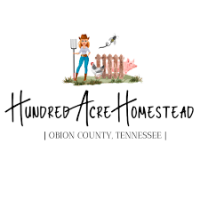Social Services Division - Rehabilitation Services
Drug Rehab Center in Middlebury, Vermont
- Opioid Addiction
- Dual Diagnosis
- Drug Addiction
- Alcoholism
This addiction treatment facility in Middlebury, VT provides experienced staff, diverse levels of care, and aftercare support to enable individuals to experience successful sobriety.
About Social Services Division - Rehabilitation Services in Vermont
Social Services Division - Rehabilitation Services in Middlebury, VT is a drug treatment facility that caters to individuals struggling with alcoholism, dual diagnosis, opioid addiction, and drug addiction. With a focus on providing quality care and support, they offer a range of services for those seeking to achieve and maintain sobriety. Their facility offers various levels of care, including aftercare support, drug rehab, and outpatient treatment. Located in Middlebury, individuals can access their services to receive the appropriate treatment for their addiction needs.
At Social Services Division - Rehabilitation Services, individuals struggling with addiction can find a variety of treatment methods to aid them on their recovery journey. The facility offers aftercare support to ensure individuals receive ongoing assistance even after completing their initial treatment. They provide comprehensive drug rehab programs that address the specific needs of each individual, helping them navigate through the challenges of addiction recovery. Additionally, their outpatient levels of care allow individuals to receive treatment while still maintaining their daily commitments. Through their services, Social Services Division - Rehabilitation Services aims to support individuals throughout their recovery process and equip them with the necessary tools for long-lasting sobriety.
Genders
Ages
Modality
Additional
Conditions and Issues Treated
Opioid addiction starts when a person becomes addicted to legal or illegal opioids. The addiction can happen quickly, in just a matter of days. Opioid withdrawal can be extremely uncomfortable and lead the user to continue to use even if they want to quit. Stopping using an opioid requires medical observation. Sometimes inpatient treatment with a medically supervised detox is necessary for managing the withdrawal process while learning lasting tools for maintaining recovery. Medications may be used in some cases of opioid addiction.
Opioid addiction is one of Vermont‘s most prominent forms of addiction. It’s treated by detoxifying the body so that the chemicals from the medications no longer impact them and by therapies to correct behavior and target the root of the problem.
Levels of Care Offered
This center offers a variety of custom treatment tailored to individual recovery. Currently available are Aftercare Support, Drug Rehab, Outpatient, with additional therapies available as listed below.
Outpatient treatment is considered the lower intensity level of addiction treatment. It’s ideal for early phase addiction or lower intensity addictions. It may include weekly sessions instead of daily. It may include weekly sessions instead of daily. Peer group support, 12-step programs, and individual counseling may still be involved but at a lesser frequency than an intensive outpatient program. It is a good choice for someone who doesn’t need to go through a medically supervised detox and who has a supportive home environment. It requires motivation and dedication to commit to the program without constant monitoring.
Aftercare support should take place after outpatient treatment has ended. There are a few different types of aftercare support that patients can seek. These include 12 Step, Self-help groups (AA, NA), Therapeutic communities, Long-term, structured sober living arrangements, and Halfway houses (residential treatment centers).
Therapies & Programs
Individual therapy involves one-on-one sessions between the patient and therapist. It provides patients with a safe environment to openly discuss personal and sensitive issues with the therapist. They find the therapist as someone they can trust. Individual therapy aims to identify the core issues that would have led the patient to substance abuse and address them effectively. The therapist can develop patient-specific customized solutions through individual therapy, which aids speedier recovery.
Couples therapy works with clients and significant others in a professional capacity to improve relationship dynamics. This can be helpful for addicts who are trying to marry the idea of recovery into their work, family, social lives – any aspect that has to do with relationships.
Through counseling sessions, addicts will have an opportunity to talk about their addiction with professional partners. These partners can offer feedback and advice on how to get sober while keeping healthy relationships intact. A good couples therapist will help addicts understand their part in an unhealthy relationship dynamic or find ways to deal with anger or resentment from significant others outside of the home.
Family therapy is a group problem-solving that aims to improve communication and relationships between the addict, their family, and sometimes friends. The main goal of family therapy for drug addiction is to create an environment where communication can occur without judgment, hostility, or blame. The therapist is with the family as they learn to communicate differently, especially with the addict when s/he is using. The family can learn to reduce their enabling behavior or rally together and support each other during tough times.
An addict’s family can play a vital part in helping them to avoid relapse because they can spot the warning signs and help them get back on track before it becomes too much of a problem. Family therapy is one of the most effective ways to help addicts stay on the path to long-term sobriety. When a drug addict decides that they want to try and get sober, it takes the support of every person they love to succeed. It can be incredibly difficult for loved ones to watch an addict go through the pain and suffering of withdrawal, but by being there with them and supporting them, they can help to make sure that the addiction never returns.
Groups typically involve meetings with other recovering addicts who can relate to one another’s experiences. They might meet in person or online and typically focus on the process of staying sober rather than overcoming a specific addiction.
In these groups managed by Social Services Division - Rehabilitation Services, addicts can build a sense of community and develop strong emotional connections with others who understand what they are going through. These beneficial relationships can help addicts overcome their cravings and prevent relapse at any point during the recovery process.
Additional Details
Specifics, location, and helpful extra information.
Middlebury, Vermont 5753 Phone Number(802) 388-4636 Meta DetailsUpdated November 25, 2023
Staff Verified
Social Services Division - Rehabilitation Services Patient Reviews
There are no reviews yet. Be the first one to write one.
Middlebury, Vermont Addiction Information
Vermont has the highest rate of illicit drug abuse in the nation. A third of all Vermonters who are addicted to drugs admit to first having abused prescription drugs. The largest drug threat in Vermont is opioids. Fentanyl, dubbed the most dangerous drug in America, is responsible for more than half of all opioid-related deaths in Vermont. A third of all residents aged 12 and older who are addicted to drugs admit to first having abused prescription drugs. In many overdose cases, cocaine is also a contributing factor.
Treatment in Nearby Cities
- Brattleboro, VT (87.1 mi.)
- Underhill, VT (36.1 mi.)
- Montpelier, VT (33.6 mi.)
- Saint Albans Bay, VT (54.1 mi.)
- Bennington, VT (79.6 mi.)
Centers near Social Services Division - Rehabilitation Services




The facility name, logo and brand are the property and registered trademarks of Social Services Division - Rehabilitation Services, and are being used for identification and informational purposes only. Use of these names, logos and brands shall not imply endorsement. RehabNow.org is not affiliated with or sponsored by Social Services Division - Rehabilitation Services.



